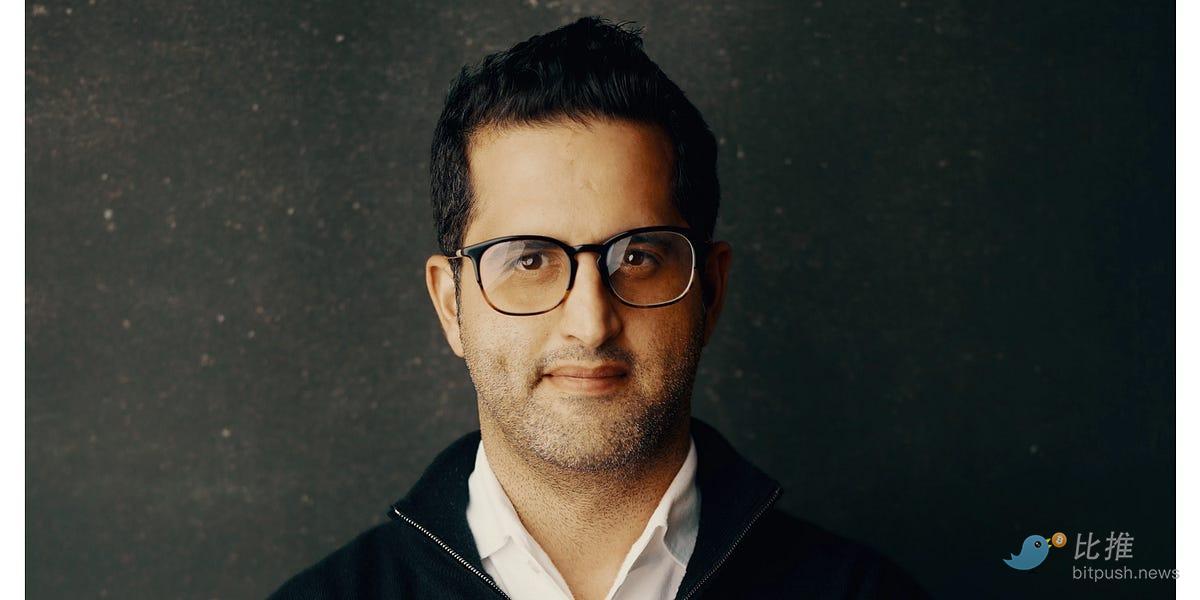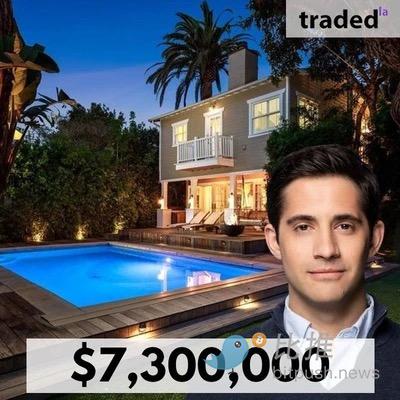Source: Fortune
Original title: Crypto founders are getting very rich, very fast—again
Compiled and edited by: BitpushNews
In the startup world, we are used to stories where founders work hard for years and eventually become millionaires when their companies go public or are acquired.
Such wealth stories are also playing out in the cryptocurrency field, only this path to riches is often much shorter.
A prime example is Bam Azizi. He founded the crypto payments company Mesh in 2020, and this year completed an $82 million Series B funding round.
Normally, this kind of financing should all be invested in the company's development, but this time at least $20 million went directly into Azizi's personal pocket.

This money comes from "secondary sales"—investors buying shares from founders or other early participants. This means that while the funding amount looks impressive, the actual amount reaching the company's account may be significantly less. However, for founders, they don't need to wait years; they can achieve financial freedom in the blink of an eye.
This isn't necessarily a bad thing. A Mesh spokesperson pointed out that the company's partnership with PayPal and the launch of its AI wallet are progressing well. However, the problem is that in the current bull market, founders are cashing out early through secondary sales, making a fortune before the company has truly proven its value.
Luxury mansion worth tens of millions
Azizi is not an isolated case. In this bull market that began last year, Bitcoin has soared from $45,000 to $125,000, creating countless wealth myths.
In mid-2024, the crypto social platform Farcaster completed a $150 million Series A funding round, with at least $15 million used to acquire shares held by founder Dan Romero .
This former Coinbase employee has never hidden his wealth. In an interview with Architectural Digest, he showed in detail his $7.3 million mansion on Venice Beach, a four-building estate that the magazine called an "Italian-style garden."

Although the renovation was a success, Farcaster's development has not been smooth sailing.
According to reports, the platform currently has fewer than 5,000 daily active users, far behind competitors such as Zora . Romero has not responded to this.
Omer Goldberg also benefited. Of the $55 million Series A funding round his security company Chaos Labs raised this year, $15 million went to him personally. This company, backed by PayPal Ventures, has become a significant voice in the blockchain security field, but has also remained silent about the deal.
Why are venture capitalists willing to pay?
According to industry insiders, secondary sales are becoming increasingly common in the current hot cryptocurrency market and popular sectors such as AI.
Top venture capital firms like Paradigm and Andreessen Horowitz often agree to acquire shares from founders to secure lead funding for high-quality projects.
For investors, this is essentially a gamble. The common equity they acquire offers limited returns, far less than preferred stock in conventional financing. But in an industry accustomed to making BTC promises, whether it's appropriate to be so generous in rewarding founders who haven't yet succeeded is certainly debatable.
Veteran cryptocurrency observers will be familiar with this scenario. During the ICO craze of 2016, countless projects easily raised hundreds of millions of dollars by issuing tokens. They promised to revolutionize blockchain technology and surpass Ethereum, but most have since disappeared.
At the time, investors tried to use "governance tokens" to constrain the founders, but one venture capitalist admitted, "They're called governance tokens, but they don't actually govern anything."
By the time the new bull market arrived in 2021, financing models began to resemble the traditional Silicon Valley model, but the phenomenon of founders cashing out in advance still existed.
In a $555 million funding round, executives at payment company MoonPay cashed out $150 million.
The market was beginning to cool down when the media reported that the CEO had spent $40 million to buy a luxury mansion in Miami.
OpenSea, a once-star project, followed a similar path, with its founding team cashing out a significant portion of their funding. However, as the NFT craze faded, the company is now forced to seek a transformation.
You are building a faith community.
Why don't venture capitalists stick to a more traditional incentive model—allowing founders to meet their basic financial needs in Series B or C rounds, but only allowing them to receive huge returns once the company truly succeeds?
Veteran trading lawyer Derek Colla pointed out the key: most cryptocurrency companies are "asset-light" and do not require the huge capital investment that is required in the chip industry, so this capital naturally flows to the founders.
He further explained, "This industry is extremely reliant on influence marketing; there are far too many people willing to throw money at founders. Essentially, you're building a belief community."
Secondary market expert Glen Anderson put it more bluntly: "In hype cycles like AI and cryptocurrency, you can easily cash out as long as you tell a good story." However, he emphasized that founders cashing out does not mean they have lost faith in the project.
Colla, the lawyer, believes that massive cash-outs do not diminish a founder's enthusiasm. He cites MoonPay as an example: although the founder faced criticism over the mansion incident, the company's business continued to thrive. Farcaster's failure was not due to the founder's lack of effort; "he worked harder than most people."
However, he also acknowledged that truly great entrepreneurs choose to hold shares for the long term because they believe these shares will multiply in value when the company goes public. "Great founders never want to sell on the secondary market," Colla concluded.
In this industry brimming with both opportunities and bubbles, wealth comes and goes quickly. As a new wave of wealth creation sweeps in, perhaps we should consider: what kind of incentives can truly nurture great companies?
Twitter: https://twitter.com/BitpushNewsCN
BitPush Telegram Community Group: https://t.me/BitPushCommunity
Subscribe to Bitpush Telegram: https://t.me/bitpush







